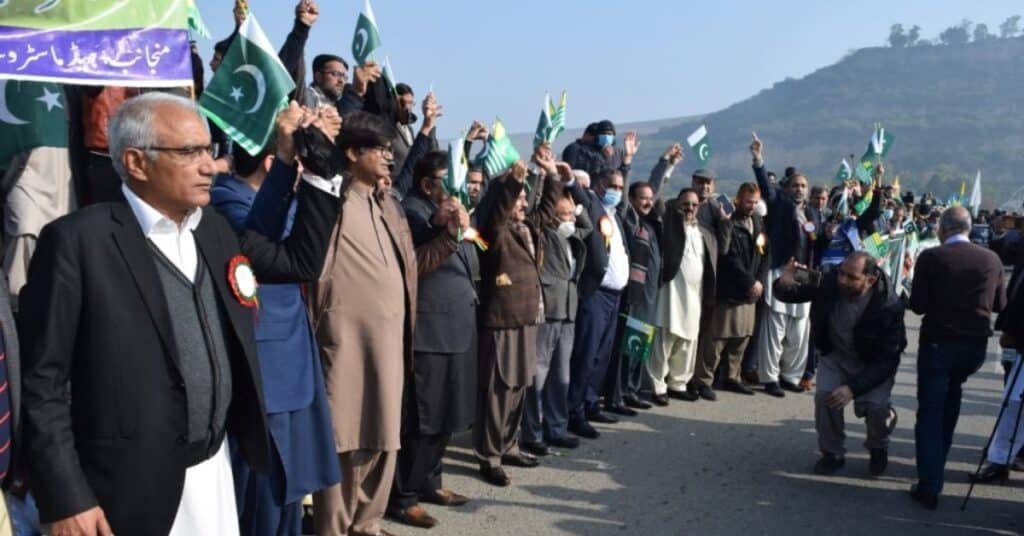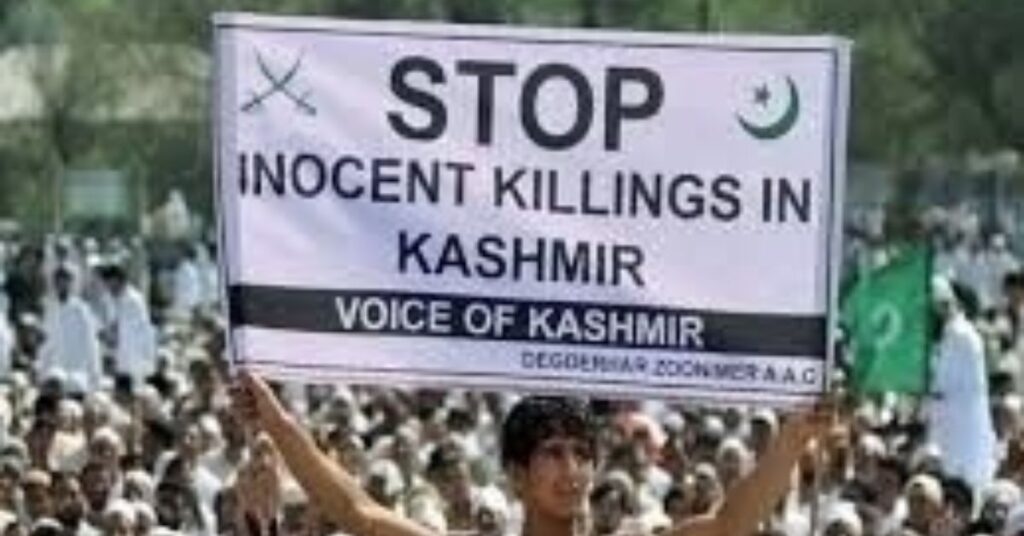MUZAFFARABAD (Kashmir English): Kashmir Solidarity Day was observed today as Pakistanis and Kashmiris organised several activities including the formation of human chains to express solidarity with the Kashmiri people being oppressed in Indian Illegally Occupied Jammu and Kashmir (IIOJK).
According to a Foreign Office news release, “the President, the Prime Minister and the Deputy Prime Minister and Foreign Minister on the occasion highlighted Pakistan’s unwavering moral, diplomatic and political support to the Kashmir cause.”
The Deputy Prime Minister and Foreign Minister addressed letters to the President of the UN Security Council and General Assembly, the UN Secretary-General, the UN High Commissioner for Human Rights, and the OIC Secretary-General on the situation in the Indian Illegally Occupied Jammu and Kashmir (IIOJK).
To mark the day, Pakistanis nationwide organised demonstrations, ceremonies, seminars, photo exhibitions, and several other activities to draw the attention of the international community to the Indian atrocities in Indian-occupied Kashmir.
One of the main activities observed on the day was the human chains, which were formed at Mangla, Kohala, Bararkot, Azad Pattan, and Holar bridges linking Pakistan and Azad Kashmir.
Similarly, human chains were formed in Leepa Valley near the Line of Control where local people from different walks of life participated in this unique demonstration. The human chains were formed in front of Indian posts to send a message to the world that the people of Pakistan are with their Kashmiri beaten in their struggle for self-determination.
This unique form of protest [human chains] is known worldwide as a message of unity and solidarity, which has now become a prominent part of Kashmir Solidarity Day.
History of Human Chains
The concept of the human chain originated in the Philippines and Eastern Europe in the 1980s, where people adopted this form of peaceful protest for their political and social demands.
This form was first used in Pakistan in the 1990s on the occasion of Kashmir Solidarity Day when people formed a chain of hands along the Line of Control to express solidarity with the Kashmiri people. This symbolic demonstration became a powerful tool for unity, determination, and peaceful protest.
Today, on the occasion of Kashmir Solidarity Day, human chains were formed in various parts of Azad Kashmir where participants joined hands, held national flags, and raised slogans of “Kashmir will become Pakistan” [Kashmir Banay Ga Pakistan]. A one-minute silence was also observed at 10 am today to pay tribute to the Kashmiri martyrs.
For Kashmiris, the human chain is a powerful symbol of unity, solidarity, and support for the right of self-determination, which plays an important role in highlighting the importance of the Kashmir issue to the international community.




